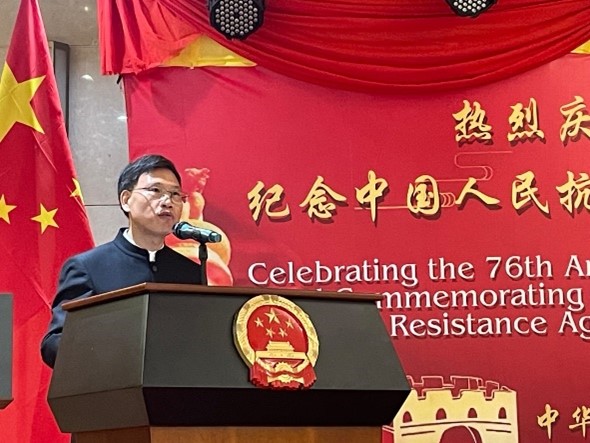China, amidst escalating global tensions and a perceived deficiency in global governance, has reiterated its commitment to multilateralism and a strengthened partnership with Africa, particularly Liberia. This renewed pledge underscores China’s foreign policy direction in a world grappling with increasing uncertainty and a shift in international power dynamics. China aims to foster stronger relationships with developing nations, positioning itself as a reliable partner in promoting economic development and advocating for a more just and equitable global order. This commitment is embodied in initiatives like the Global Governance Initiative (GGI), which champions principles of sovereign equality, international rule of law, multilateralism, people-centered development, and tangible outcomes. These principles, reminiscent of the foundational ideals of the UN Charter, are central to China’s vision for a reformed global governance system.
China’s emphasis on its historical connection with Liberia as the first signatories of the UN Charter in their respective regions further reinforces this commitment. This shared history serves as a foundation for their collaboration in reshaping the global governance landscape and advocating for a fairer and more representative international system. The regular high-level communication between President Xi Jinping and President Joseph Nyuma Boakai underscores the strategic importance of this bilateral relationship. China’s appreciation for Liberia’s adherence to the one-China principle and its support for China’s positions on international issues solidifies the mutual respect and shared interests underlying their partnership.
China’s support for Liberia’s successful bid for a non-permanent seat on the UN Security Council for the 2026-2027 term signifies a commitment to strengthening Liberia’s voice and influence within the international community. This support, coupled with the pledge for deeper coordination in multilateral affairs, demonstrates China’s intent to collaborate with Liberia on global issues of mutual concern. The frequent bilateral exchanges, including visits by high-ranking officials from both countries, highlight the growing momentum in this strategic partnership. These exchanges span various sectors, from economic and trade cooperation to infrastructure development and governance, reflecting a comprehensive approach to strengthening ties.
Economic cooperation forms a key pillar of the China-Liberia partnership. The implementation of zero-tariff treatment for Liberian exports, a significant gesture of economic support, has resulted in a substantial boost in bilateral trade. This policy underscores China’s commitment to promoting trade and investment with African nations, facilitating their economic growth and integration into the global economy. Major infrastructure projects, including the Two Overpass Bridges on Tubman Boulevard, represent tangible examples of China’s investment in Liberia’s development. These projects aim to improve critical infrastructure, stimulate economic activity, and enhance the quality of life for Liberian citizens.
Beyond infrastructure, Chinese support extends to various sectors, including media development through the refurbishment of the Liberia Broadcasting System, healthcare enhancement through the construction of a National Clinical Diagnosis and Treatment Laboratory, agricultural modernization, food assistance programs, and capacity building initiatives like the Bamboo and Rattan Weaving & Vegetable Planting Project. Furthermore, the donation of police supplies underscores China’s commitment to supporting Liberia’s law enforcement and security efforts. This multifaceted approach to development assistance demonstrates China’s commitment to addressing Liberia’s diverse needs and fostering sustainable growth.
Cultural and educational exchanges continue to flourish, further cementing people-to-people ties between the two nations. The significant increase in visas issued to Liberians, the growing number of Liberian students enrolled in Chinese universities, and the numerous Liberian professionals participating in training programs all contribute to fostering mutual understanding and strengthening cultural bonds. The upcoming China-Africa Year of People-to-People Exchanges in 2026 promises further opportunities for deeper cultural interaction and collaborative initiatives. This emphasis on cultural exchange highlights the importance of fostering mutual understanding and appreciation between the two societies, building a strong foundation for long-term cooperation. Overall, the China-Liberia partnership serves as a prominent model of South-South cooperation, characterized by shared principles, mutual respect, and a common vision for a more just and equitable global order.














